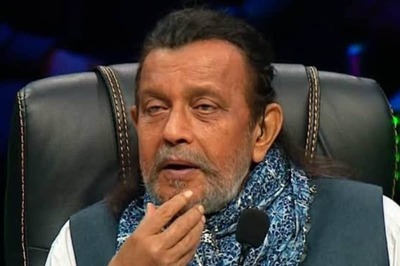
views
Whether nervous just before an interview, excited for an occasion or indulging ourselves in an intense workout session, often we all have experienced a moment where our heartbeat starts racing rapidly. This experience of rapid heartbeats is called palpitation, which we mostly don’t pay heed to and think that it will pass away with time.
In addition, the palpitation episode may last longer than usual and this may indicate a deeper problem. If you often experience episodes of palpitations, then it becomes crucial to know if the experience is triggered due to any heart disease or an anxiety attack.
Therefore, to be aware of the same, Executive Director of Interventional Cardiology of Fortis Escorts Heart Institute, Dr. Atul Mathur in conversation with The Indian Express detailed how one can identify the cause behind the palpitation. While claiming that all palpitations are not always caused due to heart disease, the expert revealed that most of the episodes are the manifestations of an anxiety attack.
He informed that palpitations can lead to a few medical conditions like fever and an overactive thyroid that could impact hormonal balance. He further claimed that while in both of these scenarios, your heartbeat turns rapid when pulses start pounding then it can be an indicator of severe anaemia. Continuing further he explained how one can identify if the palpitation is caused by the heart.
The expert explained that when there is a rapid heartbeat, which in the medical term is called arrhythmia, in the upper chamber of the heart then the patient is undergoing “atrial tachycardia.” This condition increases the heart rate to over 100 beats per minute before it reaches its normal range, which is 60 to 80 beats a minute. While these are harmless, a cardiac event can reportedly take place due to “a short circuit in the upper chamber.”
Dr. Mathur said, “As a result, the chambers contract rapidly, which may impair heart function and cause symptoms such as light-headedness or shortness of breath.” This is called Paroxysmal Supraventricular Tachycardia (PSVT) and may lead to blood clots.
He added that another situation is caused due to “atrial fibrillation.” This condition is caused when the normal beating in the upper chambers of the heart turns irregular resulting in abnormal blood flow compared to how it should “from the atria to the lower chambers of the heart.”
When to see a doctor?
If you have a history of heart disease and are facing frequent palpitations then you must get in touch with your doctor constantly. In addition, visit the medical room when you experience palpitation with chest discomfort or pain, shortness of breath, fainting, and severe dizziness.
Read all the Latest Lifestyle News here



















Comments
0 comment